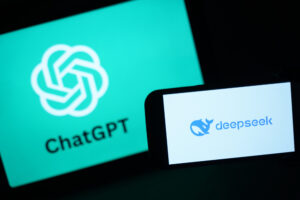AI in Education: Factors that Improve Student Learning and Those That Don’t

Understanding Artificial Intelligence in Higher Education
Introduction to AI in Education
The conversation surrounding artificial intelligence (AI) in higher education is becoming increasingly important. As technology evolves, it’s essential to understand how students are currently engaging with AI and to differentiate between tools that genuinely support learning and those that could hinder academic success.
Engaging with AI: What’s Happening?
In today’s educational environment, students are integrating AI tools into their studies in various ways. From AI-driven tutoring systems to grading assistance, these technologies can significantly enhance the learning experience. However, the effectiveness of AI relies not only on its application but also on how students use these tools in their learning processes.
Types of AI Tools and Their Uses
Tutoring and Learning Support
AI-powered tutoring systems provide personalized learning experiences by adapting to students’ unique learning styles and needs. For example, platforms like Khan Academy use AI algorithms to tailor lessons, offering exercises that match a student’s proficiency level.Research Assistance
AI can assist in research by helping students find relevant articles, summarize information, and even suggest citation formats. Tools like Grammarly and Zotero harness AI to streamline the academic writing process and ensure proper referencing.- Assessment and Feedback
Some institutions are using AI for grading and student assessment. Automated systems can quickly evaluate student work, providing timely feedback that can help students refine their skills and enhance their understanding of the material.
Benefits of AI in Higher Education
Personalized Learning Experiences: AI tools can help create learning pathways that suit individual students, promoting self-paced learning.
Efficiency: By automating repetitive tasks, AI allows educators to focus on developing curriculum and engaging with students on a more personal level.
- Access to Resources: Students can access a wealth of information and expertise through AI platforms, providing diverse perspectives and knowledge.
Potential Challenges of AI in Education
While AI presents numerous advantages, there are also challenges that must be addressed:
Over-Reliance on Technology
One concern is that students may become overly dependent on AI tools, leading to a lack of critical thinking and problem-solving skills. This dependency could short-circuit the learning process.Quality of Information
Not all AI-generated content is accurate or reliable. Students must learn to discern credible sources from untrustworthy ones, which is a vital skill in today’s information-rich environment.- Bias and Ethical Considerations
AI systems can perpetuate biases if not designed thoughtfully. Hence, educators should be aware of ethical implications and strive for inclusive practices.
Mapping the AI Landscape in Higher Education
Recent research and case studies are critical for understanding the role of AI in education. By synthesizing findings from experts, institutions can discern which AI applications genuinely enhance learning outcomes. This understanding is crucial in shaping institutional policies regarding AI usage.
Moving Forward with AI
As AI continues to develop, educational institutions must remain agile and informed. It is essential for faculty and administrators to collaborate on integrating AI tools that not only promote deeper cognitive engagement but also support overarching educational goals. By focusing on evidence-based practices, higher education can harness the power of AI to create meaningful learning experiences.
Keeping pace with these advancements will require regular assessments of how AI tools are impacting students and adjusting approaches as needed. This proactive engagement ensures that technology serves education, rather than the other way around.






